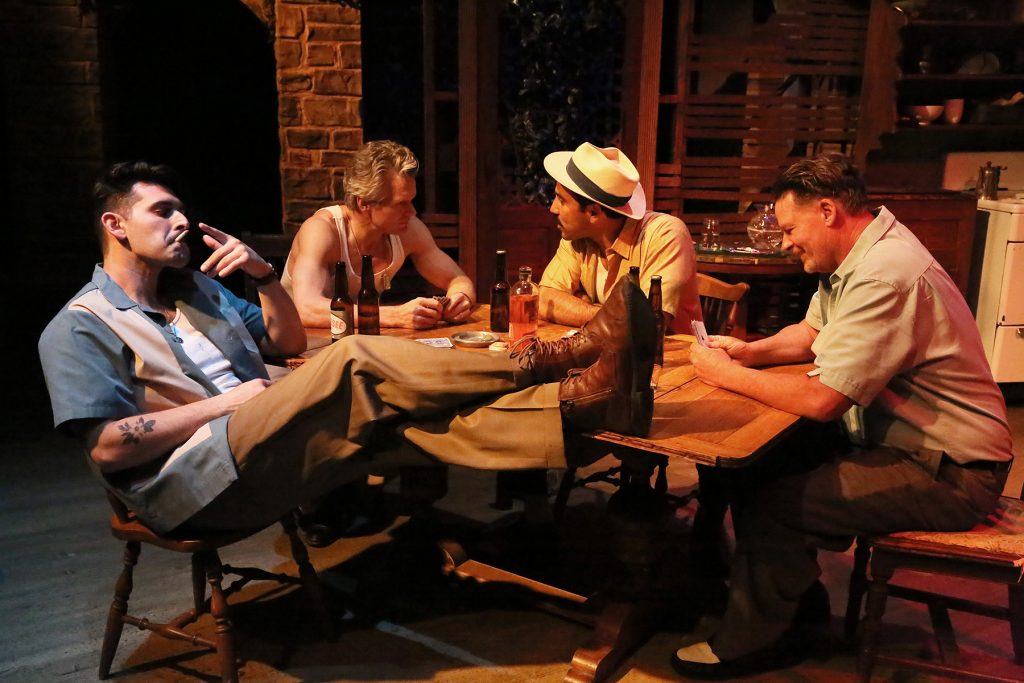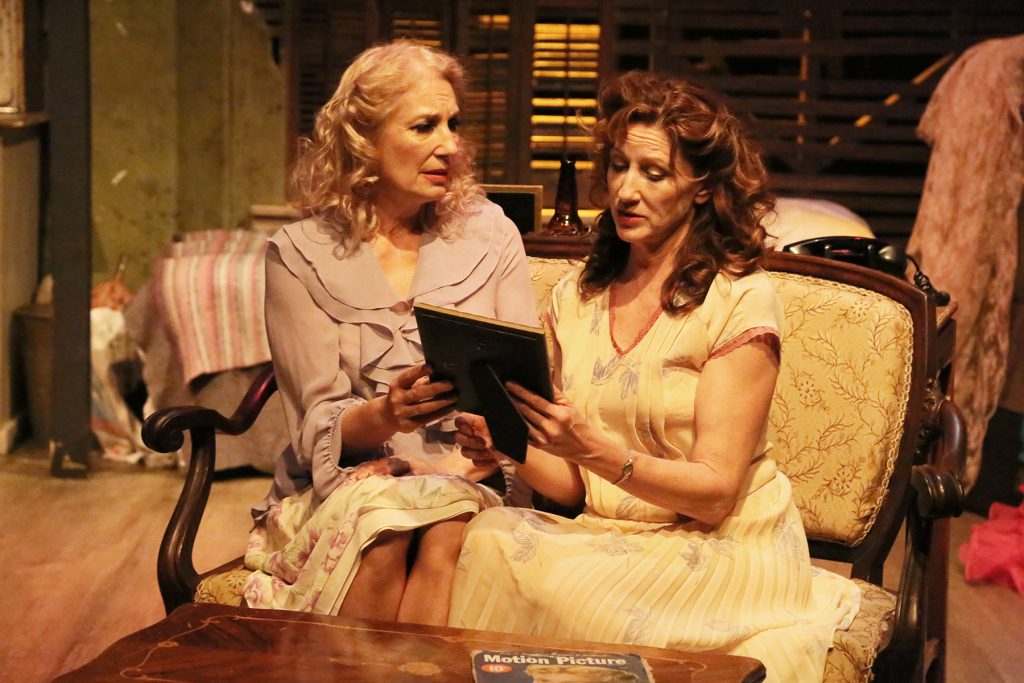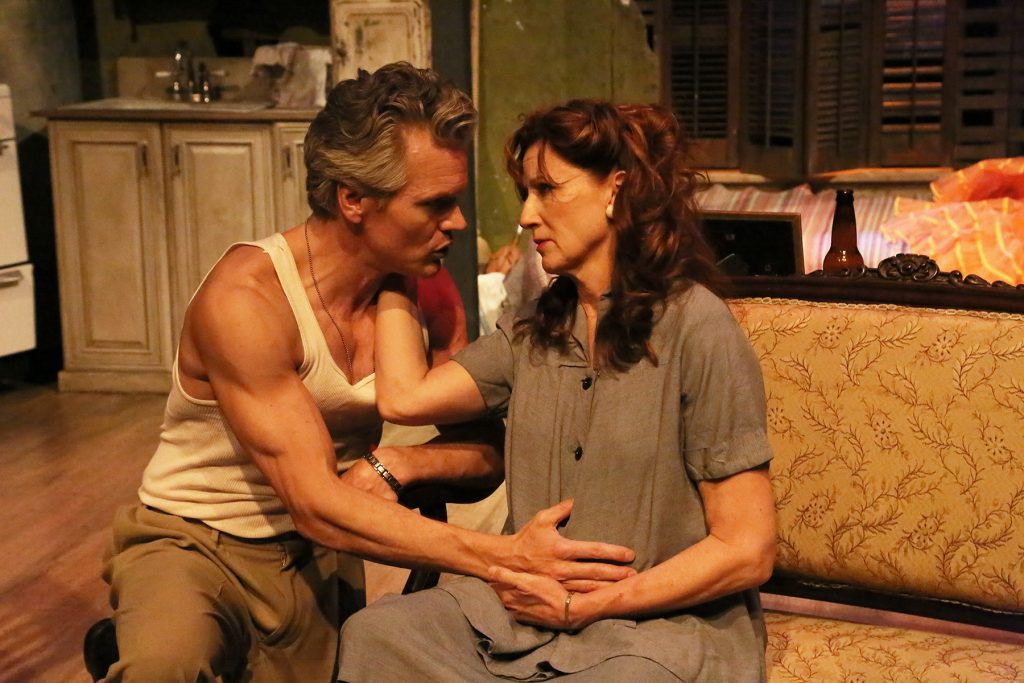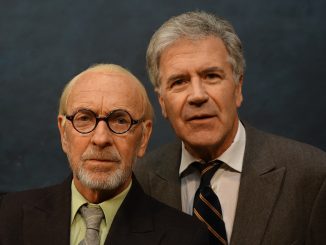
Renowned playwright Thomas Lanier (Tennessee) Williams has quite a reputation as an author who looks way below the surface to uncover the unspeakable in each of us. The recipient of two Pulitzer Prizes and multiple other stage awards, Williams holds the crown as one of the greatest American authors of the twentieth century. No exception to his extraordinary perception is A STREETCAR NAMED DESIRE, one of his most popular plays and one which many consider his best work. Produced on Broadway in 1947 (with 855 performances), A STREETCAR NAMED DESIRE went on to become an award-winning 1951 film starring Marlon Brando, Karl Malden, and Kim Hunter (for the original Broadway stage production) and Vivien Leigh (from the London stage production).

Blanche DuBois (Susan Priver) is one of the last representatives of Southern aristocracy – even though the family wealth has disappeared and the family plantation was recently foreclosed on. When a series of tragedies descend on Blanche (often fostered by her own vulnerabilities and poor judgment), she wends her way to New Orleans and the home of her sister Stella (Melissa Sullivan) – the only place where she can seek shelter in an otherwise unfriendly world. But Stella has married, and – to Blanche’s eyes – well beneath her to Stanley Kowalski (Max E. Williams), a working man with few illusions about the real world and few aspirations beyond his current common life. Meanwhile, Blanche lives in her own world filled with fantasies and fancies which threaten to disrupt the lives of everyone around her. When she meets Stanley’s friend Mitch (Christopher Parker), her daydreams may overwhelm her tenuous hold on reality.

Few realize that the Desire streetcar line actually ran in New Orleans between 1920 and 1948 – nor do many realize that Blanche was probably patterned on Williams’ schizophrenic sister (ultimately subjected to institutionalization and a prefrontal lobotomy). Like most of his plays, Williams’ family and his personal experiences played an important role in his dramas. In fact, A STREETCAR NAMED DESIRE presented such a compelling story that it was adapted to ballet (1952), opera (1995), and television (1955 through 1995).

The current production of A STREETCAR NAMED DESIRE is helmed by director Jack Heller. Joel Daavid’s scenic design is complex and impressive, with Derrick McDaniel’s lighting, Shon Le Blanc’s costumes, and Christopher Moscatiello’s sound maintaining a quietly desperate and often morose character to the story – made even more striking by the doleful whaling of blues at critical points in the drama. For those who are fans of Williams’s typically tragic tales, as well as for audiences who want to experience a complete Williams production, A STREETCAR NAMED DESIRE will more than fill the bill. This reviewer found the pace a bit slow and the characters’ intermittent explosive interludes a bit disconcerting after so many pauses and silences – all in all suggesting a degree of reverence for the famed playwright rather than the reality-based account he was probably aiming for.

A STREETCAR NAMED DESIRE runs through July 7, 2019, with performances at 8 p.m. on Thursdays (dark July 4) and Saturdays and at 2 p.m. on Sundays. The Odyssey Theatre is located at 2055 S. Sepulveda Blvd., Los Angeles, CA 90025. Tickets are $40. For information and reservations, call 310-477-2055 ext. 2 or go online.




Be the first to comment